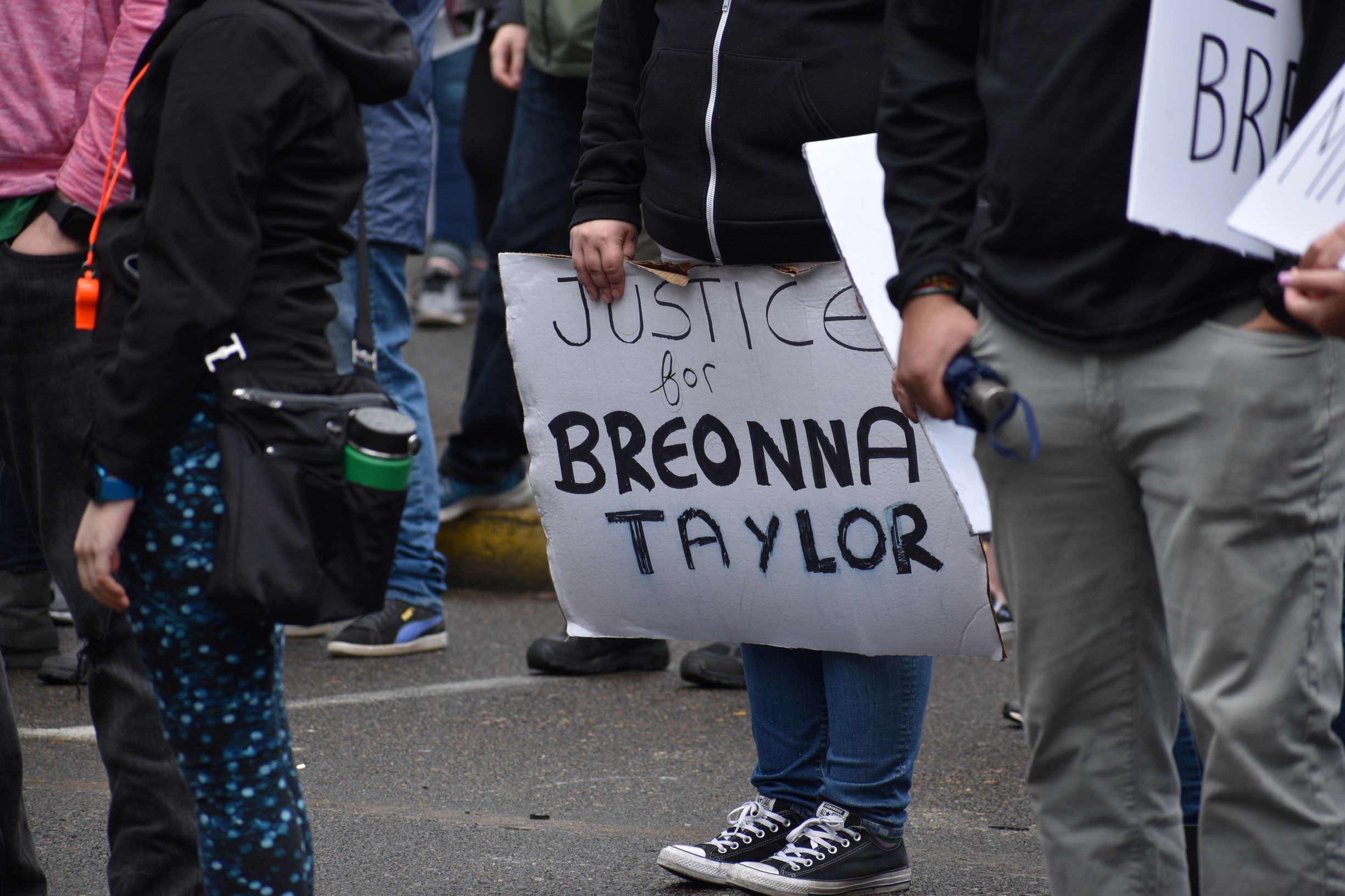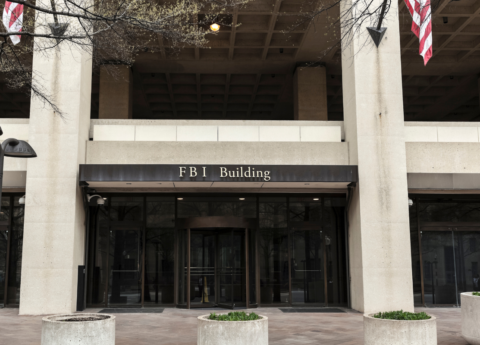On the one year anniversary of the killing of Breonna Taylor by police in March 2020, public officials, community organizations and advocates continue to call for a ban of “no-knock” warrants, similar to the one used by the police officers who entered Taylor’s home. Taylor was killed during a raid executed late at night looking for evidence in a drug investigation, and Senate Bill 4 (SB 4), as introduced, would make important changes to law that would reduce the likelihood of such a tragedy happening again. However, two House Floor Amendments (HFAs) have been introduced that would critically undermine SB 4’s original proposal – HFA 2 and HFA 3.
No-knock warrants often used in drug searches with racially disparate outcomes
No-knock warrants authorize police officers to enter a premises without first knocking and announcing their presence or purpose. These types of warrants were originally intended for use in rare, high-risk circumstances when the common practice of knocking, announcing and waiting prior to entry could result in the loss of life. Despite the original intent, since the inception of no-knock warrants (and under current law), they have mostly been used for low-level drug searches intended to secure evidence in drug cases, not to save lives. Mass adoption of no-knock warrants is an ugly legacy of the “War on Drugs” which has resulted in a dramatic expansion of incarceration in the United States.
In the context of overpolicing communities of color, no-knock raids have become a violent practice with racially disparate outcomes that frequently result in the injury or death of people whose homes are invaded, including many individuals entirely innocent of a crime (as was the case with Taylor). According to one 2018 analysis, only 5% of SWAT raids are carried out for high-risk “barricade” scenarios, and nearly 90% are carried out to execute searches. In another report from the American Civil Liberties Union analyzing SWAT deployments, 62% of no-knock and quick-knock raids performed across 800 deployments were performed to obtain drugs. In that same report, 36% of the raids reportedly resulted in no discovery of drugs (35% reportedly did, and 29% had no information on whether any drugs or items were seized). Black and Latino people and communities are disproportionally targeted by these drug-motivated no-knock searches, with Black people and predominantly Black communities overrepresented in SWAT searches both nationally and in Louisville.
SB 4 would limit no-knock warrants and reduce harm
As introduced, SB 4 – sponsored by Senator Stivers and passed by the House Judiciary committee last week in a meeting that also included discussion only of Representative Scott’s House Bill 21 – would make it more difficult to obtain a no-knock warrant. It would significantly restrict the use of no-knock warrants to primarily exigent and high-risk circumstances such as violent crimes and situations. This will end the use of most no-knock warrants in Kentucky and will essentially serve as a ban on the practice of using no-knock warrants for low level drug searches, a welcome and needed step to reduce the risk of violence and death in unnecessary situations.
Further, a law enforcement official seeking a no-knock warrant would have to receive approval from a supervising officer, consult with the commonwealth or county attorney (or assistant), and disclose to the judge any other attempts to obtain a warrant on the same individual or premises.
SB 4 also places new guardrails on the execution of no-knock warrants. Under SB 4, no-knock warrants can only be carried out between 6 a.m. and 10 p.m., and officers executing the warrant are required to wear activated body cameras during the execution. Furthermore, such warrants must be performed by a special weapons and tactics team (SWAT) or another specially trained unit. As an incentive to encourage compliance with the law, SB 4 provides that any evidence recovered under a warrant that does not comply with the law will not be admissible in civil or criminal proceedings.
Newly introduced HFA 2 and HFA 3 would negate positive effects of SB 4
While SB 4 contains many provisions that will reduce harm to the community from violent and egregious policing, HFA 2 and HFA 3, if adopted, will negate many of these positive elements.
HFA 2 would extend the time period during which no-knock warrants can be executed from 10 pm to midnight. This would allow raids to occur while many people are sleeping, greatly increasing the risk that the execution of no-knock warrants will result in harm to both civilians and the law enforcement officers executing the warrant.
HFA 2 also allows any law enforcement officers (including those not part of SWAT or without specialized training) to execute no-knock warrants if exigent circumstances exist. SB 4 allows execution of these raids only by SWAT or specially trained units for good reason. The data on no-knock and quick-knock raids shows that these raids often end in violence, and a New York Times investigation examining data from 2010 through 2016 found that 81 civilians and 13 law enforcement officers were killed in both no-knock and knock-and-announce raids during that time. An estimated 44% of Americans live in a household with a gun, and because many states (including Kentucky) currently have “castle doctrine” or “stand your ground” laws allowing individuals who are being attacked to “meet force with force,“ the opportunity for violent confrontations during no-knock raids is pervasive. Allowing untrained, non-specialized officers to execute these warrants puts the officers and civilians at even greater risk.
HFA 3 extends the allowable exemptions for no-knock warrants to be obtained to include drug-related Class B and Class C felonies. In addition to this being a dangerous practice that disparately harms Kentuckians of color, the constitutionality of using no-knock warrants to conduct drug-related searches has been continuously challenged since their inception under the Fourth Amendment’s protection against “unreasonable searches and seizures.” If passed, HFA 3 will effectively reverse one of the expected positive impacts of SB 4 by providing a broad opening for the continued use of no-knock warrants in drug cases, allowing raids like the one that resulted in the killing of Breonna Taylor.
The Kentucky House should vote against harmful amendments
To protect Kentuckians, and to make changes in the law that significantly curtail the use of no-knock raids, the General Assembly should pass SB 4 without HFAs 2 and 3. These amendments undermine the intent of the bill to such a degree that if included, the status quo will be maintained, and we will still be stuck with the same harmful laws and practices that led to the death of Breonna Taylor.




